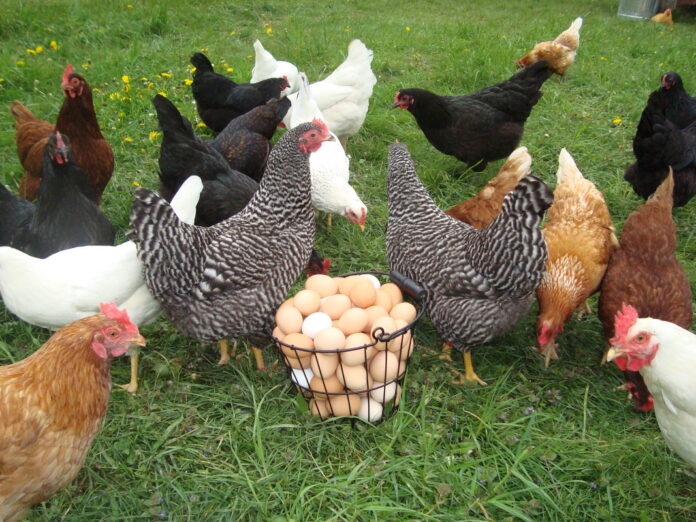The following is the diary of chicken farmer Subiri Obwogo. It was first published in Seeds of Gold Magazine.
When Charles, my farm worker, went to collect eggs from the chicken coop that hosts 35 hens on October 11, he only found four.
It was the first time such a thing had happened since the chickens started laying eggs over a year ago. Normally, I collect between 20-30 eggs daily from the 35 hens. I, then, incubate the eggs for hatching into chicks.
At first I suspected foul play. Was the worker selling some eggs? He denied vehemently when I asked. The chicken coop was secure and it was unlikely a predator was eating the eggs.
The following morning, I sent Murimi, the other worker to collect the eggs. Again, he only found three. However, he noticed something strange. As soon as an egg was laid, the birds would immediately break the shell and devour the contents, including the shell.
I had never experienced this form of cannibalism where birds eat their own eggs. I was worried and for two weeks, I had sleepless nights as I had no eggs to hatch yet orders for chicks from my customers were coming in fast.
I sought advice from several people, including my agrovet, who impresses me with his vast knowledge in poultry.
He told me there are several causes for this strange phenomena, from overcrowding in the coop, which leads to stress and nutritional deficiencies, particularly the lack of Vitamin D and calcium.
My first idea was to substitute the bone meal in the home-made feeds with commercially-prepared di-calcium phosphatase. It didn’t help. I then tried a commercially prepared chicken feed. This didn’t work either. I concluded nutritional imbalance was not the cause of the problem.
For some reason, the workers resisted the idea of monitoring the coop to collect the eggs as soon as they were laid. Responding facetiously, they told me when they watched over the hens, they refused to lay eggs.
I was frustrated. When I asked fellow farmers, I learnt that this was a common problem. If action is not instituted, cannibalism can become a permanent feature. Once the birds get a test of their sweetness, they become addicted.
After ruling out nutritional deficiencies, poor nesting space and overcrowding as the primary causes, I decided to de-beak the birds.
Beak trimming involves removing one third of the upper beak using a special scissor, taking care not to cut the tongue.
This somehow worked because since then, I have been collecting about 20 eggs every day.
However, I haven’t quite cured the nasty habit. Last Sunday, I conducted an experiment to test this. I broke an egg and poured the content on the floor. The birds rushed to devour it immediately.
I then left three unbroken eggs lying on the floor of the coop and after two hours, the birds hadn’t pecked them.
I am yet to try my wife’s idea: beating the egg into a creamy liquid, adding ground pepper and pouring on the floor for the hens to peck. Some researchers at University of Florida, US, have found that the bad taste the hens will encounter cures the habit.
Another thing to do is filling a dish with milk and letting hens drink it for several days. Giving hens a calcium supplement like limestone or oyster shells has been known to work.
Another idea is identifying and secluding the offending birds as soon as possible so they don’t spread the bad habit to the rest.
I am now trying the milk and pepper ideas, and I hope it will stop the menace completely. I will give you a detailed update.








